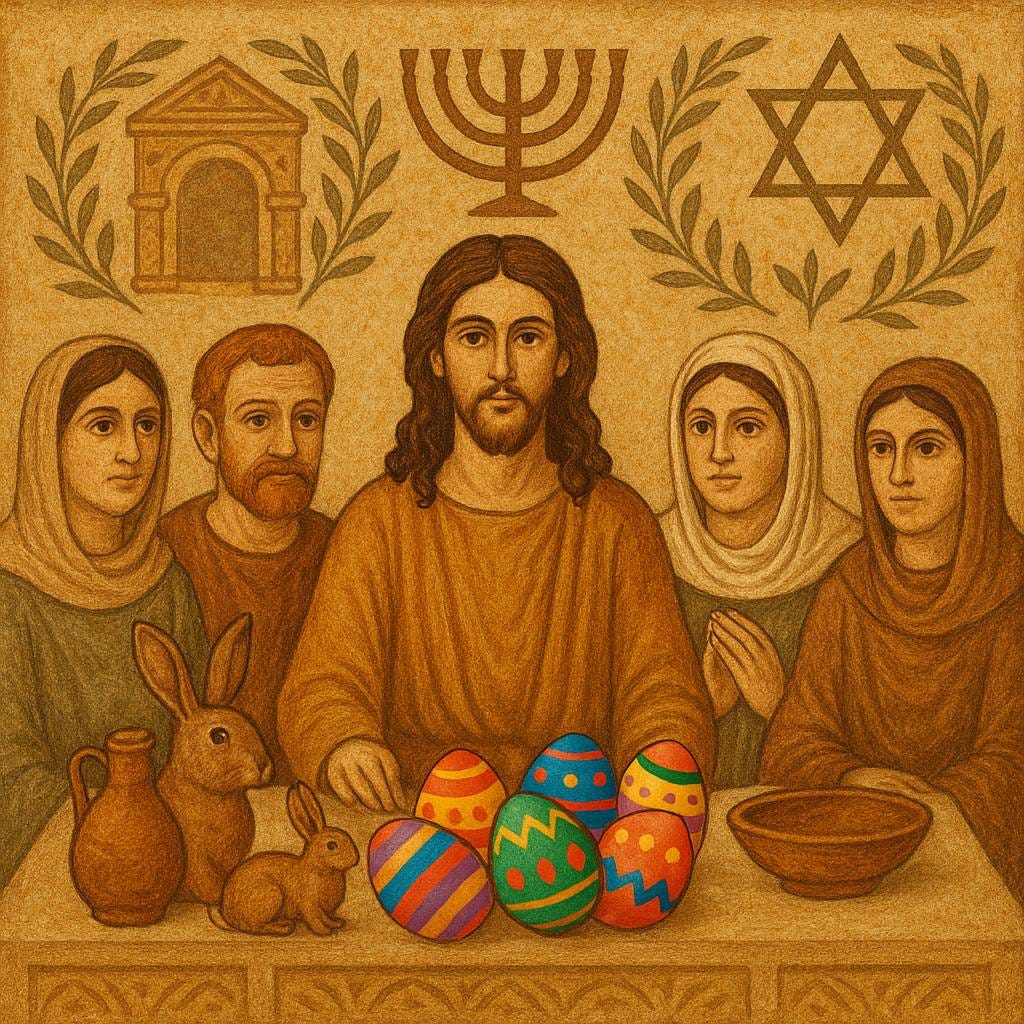Christian origin of Easter?
This is my translation of my article "Christlicher Ursprung von Ostern?"
Before I move on to the Pagan origins of Easter, I would first like to discuss a possible Christian origin of today's festival.
However, I want to emphasize in advance that this is not my opinion, or that I want to advocate this view, let alone promote it.
I am also raising this topic here because little seems to be known about it among Heathens.
Part 2
Christian origin of Easter?
Part 1 can be found here.
Part 3 can be found here.
1. Easter as a Passah-based festival
According to the four Gospels of the Bible, Jesus was crucified around the time of the Jewish Passover festival. Logically, the first Christians began to commemorate Jesus' death and resurrection at the time of this feast. The Greek and Latin word for Easter is Pascha, derived from the Hebrew Pesaḥ (פֶּסַח).
The period is derived directly from a Jewish festival, albeit with a completely new interpretation, as the Jews celebrate the exodus of their ancestors from Egypt and thus from slavery with Pessach.
2. The Quartodecimans and the Easter controversy
There was an important debate in the 2nd century. A subgroup of early Christians, called the Quartodecimans, celebrated Easter on the 14th of Nisan (the first month in the Jewish calendar), like Pessach. Other communities, however, especially in Rome, always celebrated Easter on a Sunday after the spring full moon - this later became the Christian Easter date used today. This discussion, which lasted from the 2nd century to the 8th century of the Christian era, was internal to the church and was based on the Jewish calendar and not on pagan customs.
3. If one assumes the above-mentioned origin of the Christian Easter, why is it called Easter in German and Easter in English?
According to the Anglo-Saxon theologian and historian Beda Venerabilis (672 or 673 to 735), “Easter” is based on the Old English word Ēostre. Ēosturmonath is the Old English name for the month of April. The month was in turn named after a goddess called Ēostre.
The old month names were still used in England until the Norman Conquest in the 11th century, before they were replaced by the Roman terms under French influence.
In German, we have the Franconian theologian and biographer Einhard (770 to 840), from whom we know that the month of April was still called “Ostarmanoth” in his time.
In rural calendars, April was often referred to as “Ostermonat” until the 18th century and in some dialects until the 19th century.
The theory that has been deduced from this is that the names “Ostern” and “Easter” were probably derived from the pre-Christian month names, not directly from a cult or the goddess.
In this sense, the Christian festival commemorating the death and resurrection of Jesus became the festival “celebrated in the month of Easter / April”.
However, this theory does not contradict the assumption that the Christian festival replaced a pre-existing pagan festival in the same period.



